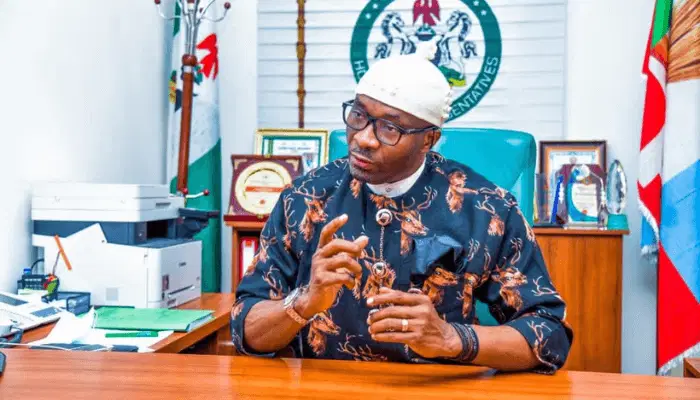Delay in Digital Trade Reforms Could Leave Africa Behind, Warns Kalu

Deputy Speaker of the House of Representatives, Benjamin Kalu, has cautioned that Nigeria and Africa risk being left behind in the global economy if they fail to urgently embrace digital trade reforms.
Kalu issued the warning on the sidelines of the World Trade Organization (WTO)–Inter-Parliamentary Union (IPU) Steering Committee session at the WTO Public Forum 2025 in Geneva, Switzerland.
The WTO Public Forum, the body’s largest annual outreach platform, brings together governments, lawmakers, business leaders, civil society, and academics to discuss global trade challenges and solutions.
The IPU, which represents national parliaments worldwide, partners with the WTO to ensure legislators play a central role in shaping trade governance.
Kalu, who represents Nigeria on the WTO–IPU Steering Committee, stressed that parliaments across Africa must take the lead through lawmaking, advocacy, and oversight.
“Trade is no longer what it used to be. Relying solely on traditional systems will not deliver the economic value we seek,” he said.
“Globally, the marketplace has gone digital, and any delay risks leaving us behind while others surge ahead.”
The lawmaker highlighted Nigeria’s progress in passing key legislation on privacy protection, governance, and digital innovation but warned that broader awareness was still lacking.
“To the average cocoa or palm oil seller, all that matters is payment into a bank account.
Many have not realized that digital trade can simplify transactions, expand markets, and increase value,” Kalu explained.
He argued that parliament’s role was not only to enact laws but also to communicate their benefits to the public.
“When citizens listen to parliamentary debates, grounded in research and focused on vital issues, they begin to see the advantages of entering the digital space.”
Kalu also linked digital reforms to the success of the African Continental Free Trade Area (AfCFTA), stressing the need for harmonized digital trade frameworks across the continent.
“To succeed under AfCFTA, no nation must be left in isolation. That is why I have proposed a legislative toolkit to monitor how parliaments across Africa are addressing digital trade.
We must also strengthen legislative scrutiny to ensure effective implementation of these reforms,” he said.
According to him, bridging this gap is “the role parliament must play to drive digital trade and Africa’s economic future.”









